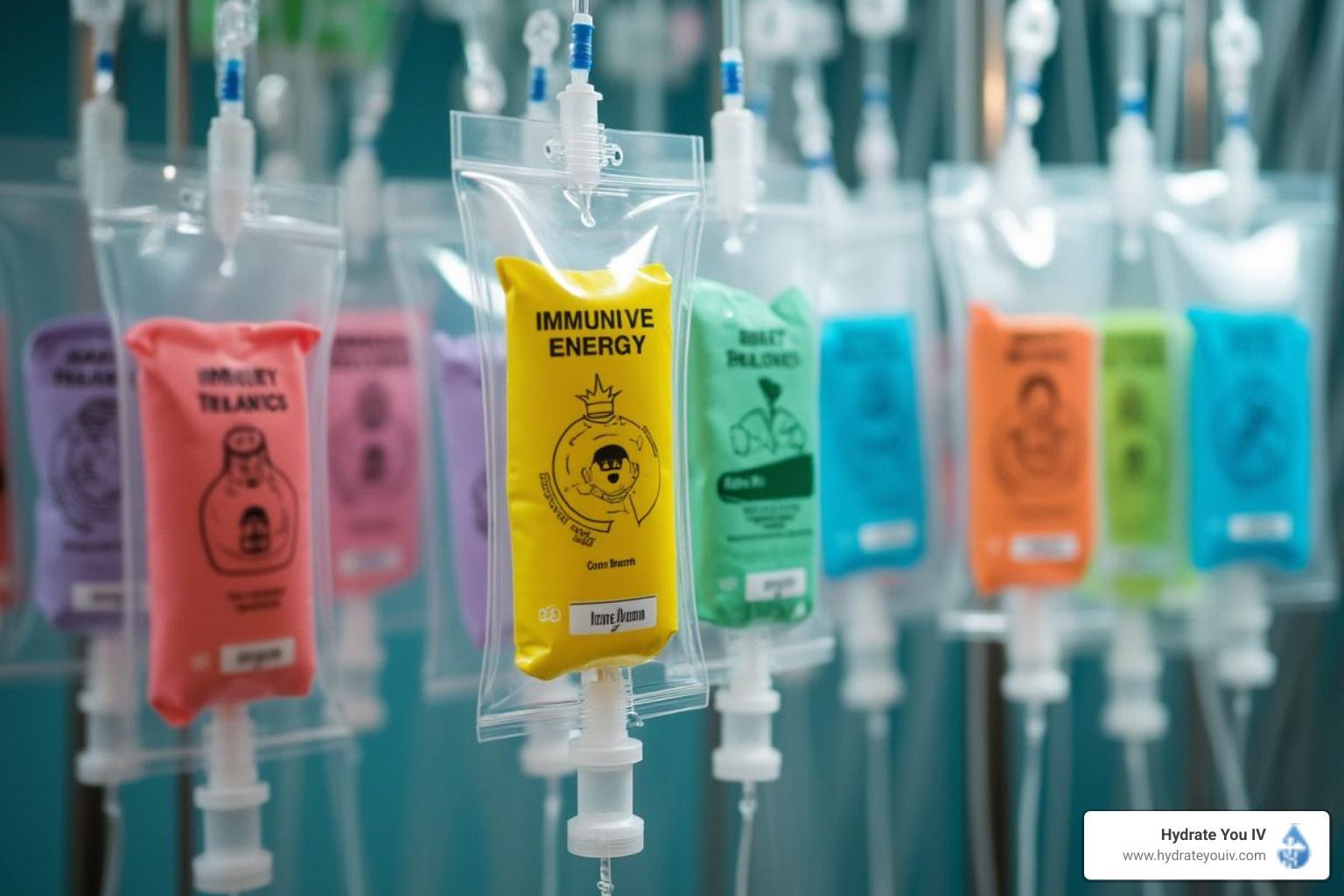Flu IV Therapy: Fast Relief and Immunity Boost This Season
Flu Season Relief: Boosting Immunity with IV Therapy

As the temperatures drop and the days shorten, flu season inevitably approaches. Many people seek ways to bolster their immune systems to fend off viruses effectively. One increasingly popular method is through intravenous (IV) therapy, which can hydrate, nourish, and support the body’s natural defenses. In this article, we will explore the flu season, the immune system, and how IV therapy can play a supportive role in maintaining health during this challenging time.
Understanding the Flu Season
Flu season typically runs from late fall to early spring, often peaking in January and February. During this time, the influenza virus spreads more easily, thanks in part to the colder weather that drives people indoors. Understanding the flu and its effects is crucial for developing effective prevention strategies.
The Impact of Flu on the Body
The influenza virus primarily affects the respiratory system, leading to inflammation of the airways and lungs. When the virus enters the body, it hijacks healthy cells, replicating itself and causing damage. This can lead to complications, especially in vulnerable populations such as the elderly, young children, and those with pre-existing health conditions.
Besides respiratory issues, the flu can also lead to systemic symptoms, affecting overall well-being. Individuals may experience fatigue, muscle aches, and fever as the body fights the infection. For many, these symptoms can be debilitating, making it essential to emphasize prevention and bolster immunity.
Common Flu Symptoms
- High fever
- Chills and sweats
- Muscle or body aches
- Headaches
- Fatigue and exhaustion
- Dry cough
- Sore throat
- Runny or stuffy nose
Recognizing these symptoms can help individuals seek timely medical care, reducing the severity and duration of the illness.
The Concept of Immunity
Immunity is the body’s defense mechanism against diseases and infections. It involves a complex interaction between various cells, tissues, and organs working together to identify and eliminate pathogens.
How the Immune System Works
The immune system identifies harmful invaders—such as viruses, bacteria, and parasites—and initiates a response to neutralize them. Key components include white blood cells, antibodies, and signaling molecules that communicate threats to the body. A properly functioning immune system can efficiently locate and destroy these invaders, preventing illness.
Furthermore, the immune system possesses memory cells that remember past infections, making subsequent responses faster and more effective. This is the fundamental principle behind vaccinations, which help prepare the immune system for potential future encounters with a virus.
Factors Affecting Immune Health
Various factors can influence immune health, including:
- Nutrition: A well-balanced diet rich in vitamins and minerals is essential for optimal immune function.
- Sleep: Adequate sleep allows the body to recover and produce the necessary immune cells.
- Stress: Chronic stress can suppress immune responses, making individuals more susceptible to infections.
- Exercise: Regular physical activity can boost immune health by promoting good circulation.
Being aware of these factors can guide individuals in making lifestyle choices that support their immune system.
Introduction to IV Therapy
Intravenous therapy (IV therapy) is a medical technique that administers fluids, medications, and nutrients directly into a patient's bloodstream via a vein. This method allows for immediate absorption and can be tailored to meet individual health needs.
What is IV Therapy?
IV therapy has been used for decades in hospitals, mainly for hydration and nutrition. However, it has gained popularity beyond clinical settings, becoming common in wellness and alternative health practices. It can deliver vitamins, minerals, and hydrating fluids in higher concentrations than typical oral intake.
The Science Behind IV Therapy
The primary benefit of IV therapy lies in its ability to bypass the digestive system, allowing nutrients to enter the bloodstream quickly and efficiently. This method ensures that the body absorbs nearly 100% of the nutrients provided, making it an attractive option for those looking to boost their overall health and well-being.
Studies suggest that IV therapy can enhance hydration, improve energy levels, and promote faster recovery from illnesses. As such, it has become a favored option during flu season for individuals seeking to bolster their immune defenses.
IV Therapy for Immunity Boost
With flu season in full swing, many are turning to IV therapy as an adjunctive treatment to enhance immune function. This therapy can provide essential vitamins and minerals imperative for maintaining a strong defense against the influenza virus.
Benefits of IV Therapy for Immunity
- Rapid Nutrient Delivery: IV therapy ensures that vital nutrients are delivered quickly, promoting immediate benefits to the immune system.
- Hydration: Proper hydration supports overall body functions, including the immune response.
- Personalized Treatments: IV therapy can be tailored to meet individual nutritional needs, ensuring optimal health.
- Enhanced Recovery: It may shorten recovery time from illnesses, allowing individuals to return to their regular activities faster.
Types of IV Therapy for Immunity Boost
Several IV therapy formulations can support immune health, including:
- Vitamin C Infusion: High doses of Vitamin C can enhance immune function and potentially reduce the severity and duration of the flu.
- Zinc Infusion: Zinc is crucial for the immune system and can help in fighting infections.
- Myers' Cocktail: This popular blend includes essential vitamins and minerals, promoting overall wellness.
- Hydration Therapy: Infusing fluids helps to maintain hydration, particularly when battling flu symptoms.
Safety and Efficacy of IV Therapy
While IV therapy offers numerous benefits, it is essential to consider its safety and efficacy. Understanding potential risks, as well as who should consider this form of treatment, is vital for informed decision-making.
Potential Side Effects of IV Therapy
Though generally considered safe when administered by trained professionals, patients may experience side effects, such as:
- Infection at the injection site
- Allergic reactions to substances used in the infusion
- Vein irritation
Consulting with a healthcare provider prior to receiving IV therapy can help mitigate these risks and ensure a safe treatment experience.
Who Should Consider IV Therapy?
IV therapy may be a suitable option for individuals experiencing:
- Frequent illnesses or infections
- Chronic fatigue or weakness
- Dehydration due to illness or other factors
- Those seeking to enhance their overall health and wellness
However, it is not recommended for everyone. Those with certain medical conditions should consult their healthcare providers to determine if IV therapy is an appropriate option for their circumstances.
In conclusion, as flu season approaches, individuals have various strategies to enhance their immunity. By understanding the flu, the immune system, and the potential benefits of IV therapy, individuals can take proactive steps toward better health and resilience during this challenging season.











